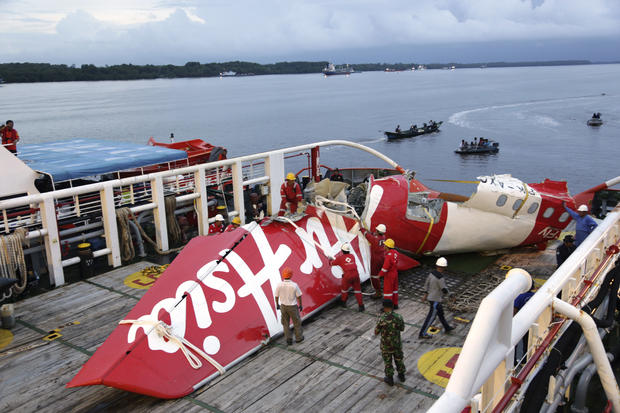Is reliance on devices rather than pilots causing crashes?
The first officer, not the more experienced captain was at the controls of the AirAsia plane that crashed into the Java Sea, killing 162.
Flying in bad weather, AirAsia 8501 made an abnormally steep climb from 32,000 to 37,000 feet in 30 seconds.
The plane then went into an aerodynamic stall. The computer technology designed to prevent that may have malfunctioned or been turned off. After that, there was a terrifying fall to the Java Sea.
The captain of the plane had more than 20,000 hours of flying time, but the first officer who was at the controls had a fraction of that; 2,200 hours.
Planes have become increasingly automated, with pilots simply punching navigation directions into computers.
"The increasing use of increasingly complex automation in our cockpits has meant that pilots get fewer opportunities to practice manually flying the airplane," explained CBS News consultant Capt. Chesley "Sully" Sullenberger. "They have lost some of their manual flying skills and their confidence in them."
The consequences have been deadly. In 2009, 228 people perished when Air France 447 crashed in the Atlantic Ocean. Investigators said pilots were "completely surprised" by technical problems.
In 2013, when Asiana Flight 214 crashed in San Francisco, the NTSB concluded the flight crew over-relied on automated systems that they did not fully understand. Three were killed, nearly 200 people were injured.
"I think the public should be concerned but more realistically the FAA should be concerned," said Michael Barr, an aviation safety expert at the University of Southern California. "The longer the pilot sits there the further he basically becomes a satellite to the actual airplane itself, he gets outside the loop."
We are not finding a lot of disagreement on this issue. The Airline Pilots Association told us the best and most important safety aspect of any plane is a well-trained, highly motivated professional pilot.
